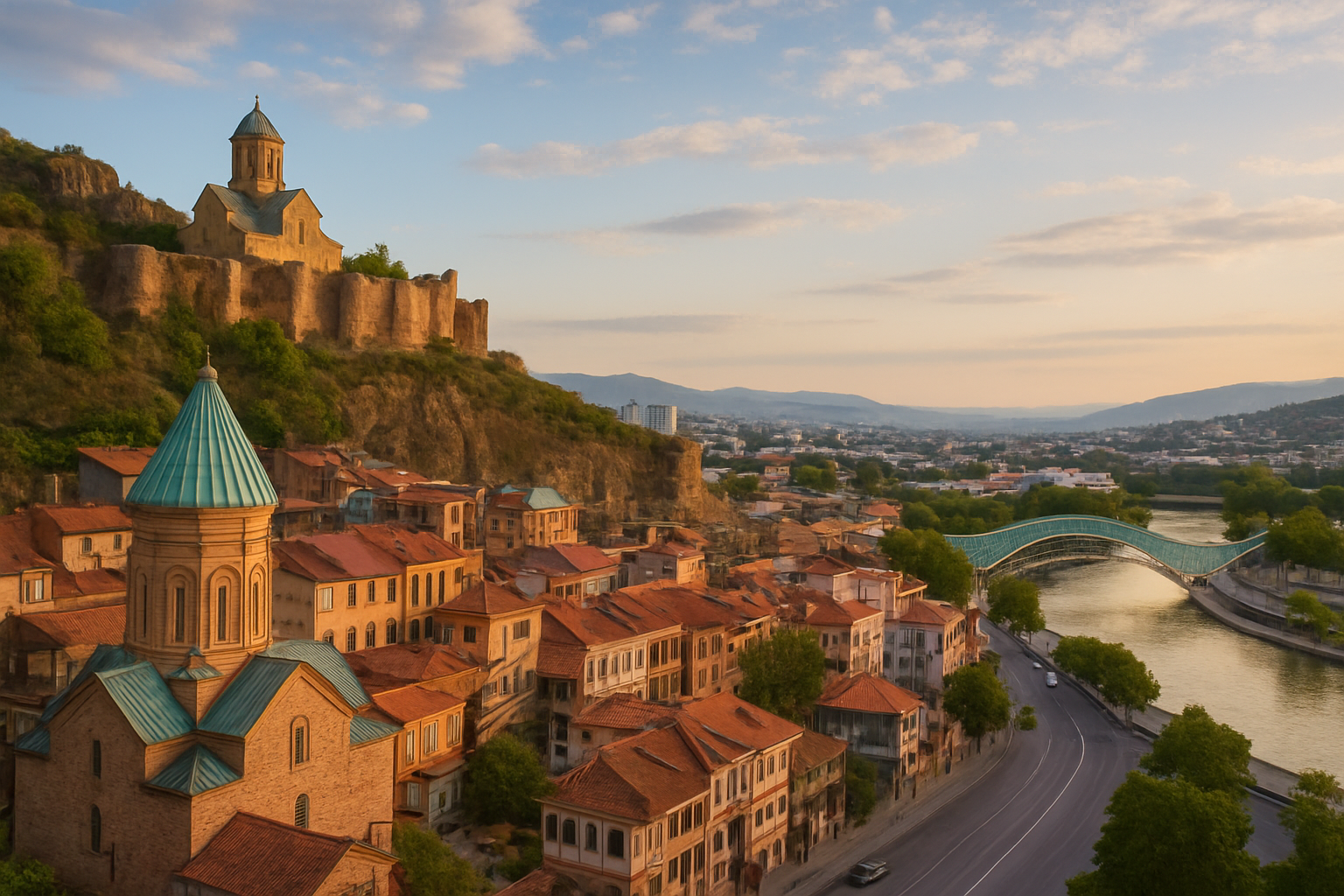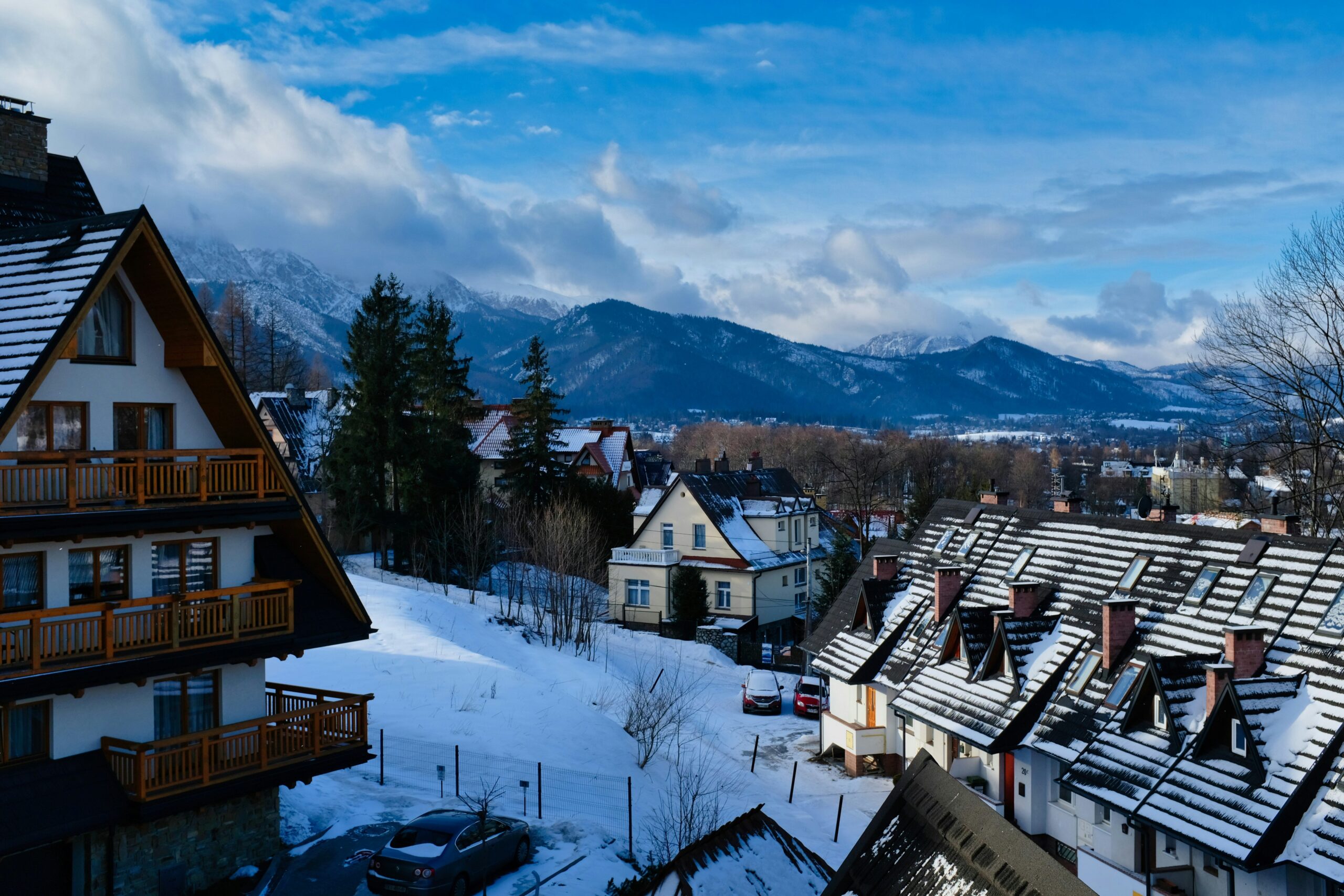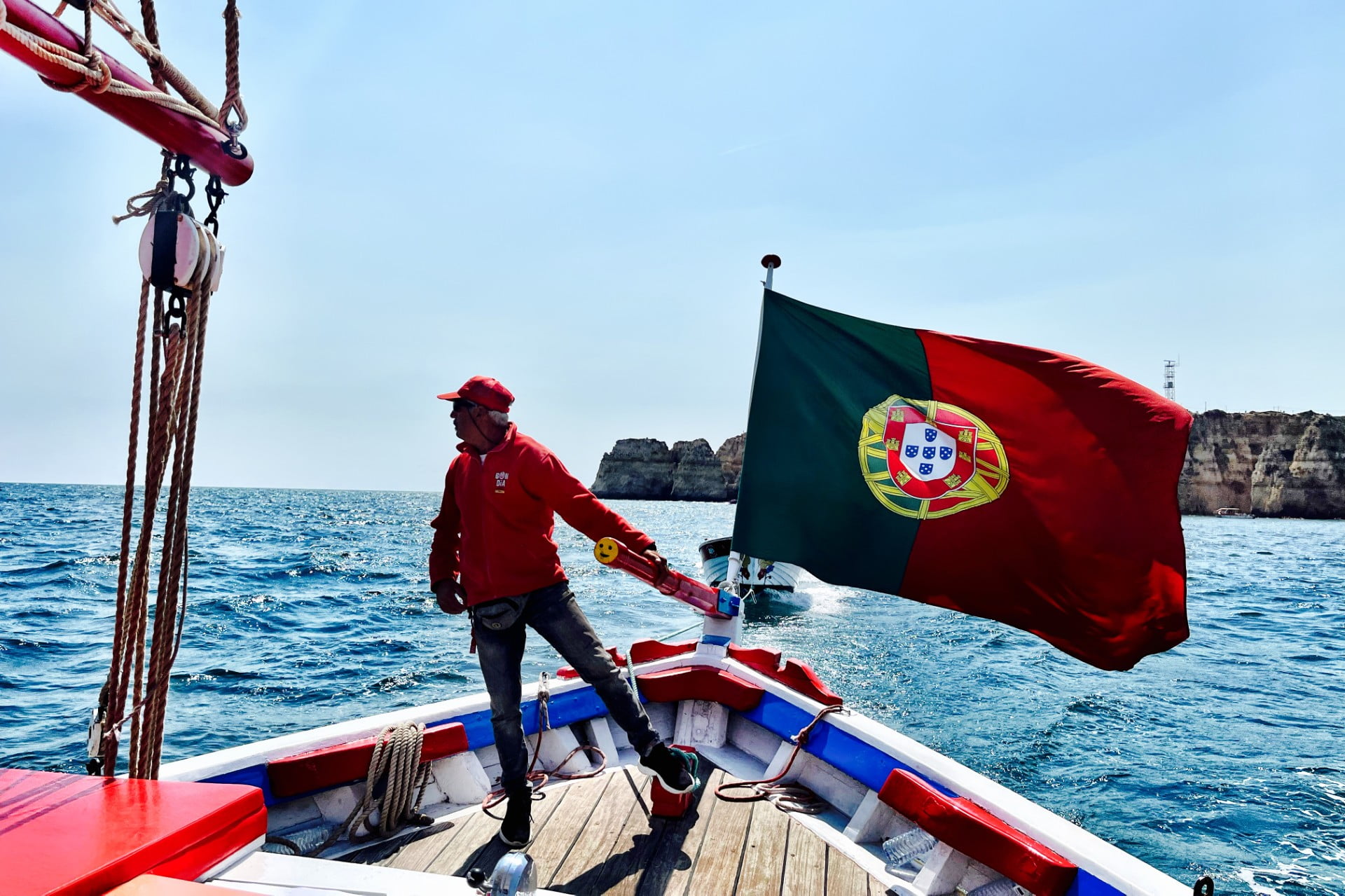Tbilisi Travel Guide: Why Georgia’s Capital is a Must-Visit in 2025
Georgia’s capital sits at the crossroads of continents, where ancient sulfur springs meet hipster coffee shops, and Soviet-era buildings wear vibrant street art like badges of honor. Tbilisi isn’t just another European city break destination—it’s a cultural kaleidoscope that rewards curious travelers with authentic experiences and digital nomads with an unbeatable quality of life.
While Instagram influencers flock to overcrowded hotspots, savvy travelers are discovering what locals have always known: Tbilisi offers everything you want from a great city without the chaos or inflated prices. Here’s why Georgia’s capital deserves a spot on your 2025 travel plans.
What Makes Tbilisi Different
Most cities either embrace modernity or cling to tradition. Tbilisi does both, creating something entirely unique. Medieval churches anchor neighborhoods where startups occupy converted Soviet factories. The Kura River winds through it all, reflecting a skyline that spans centuries of architectural ambition.
The city’s secret weapon is its people. Georgian hospitality isn’t a tourism board slogan—it’s a way of life. Expect invitations to family dinners, wine tastings that turn into philosophical discussions, and helpful directions that come with mini history lessons. This genuine warmth creates an atmosphere that feels more like visiting friends than checking off tourist attractions.
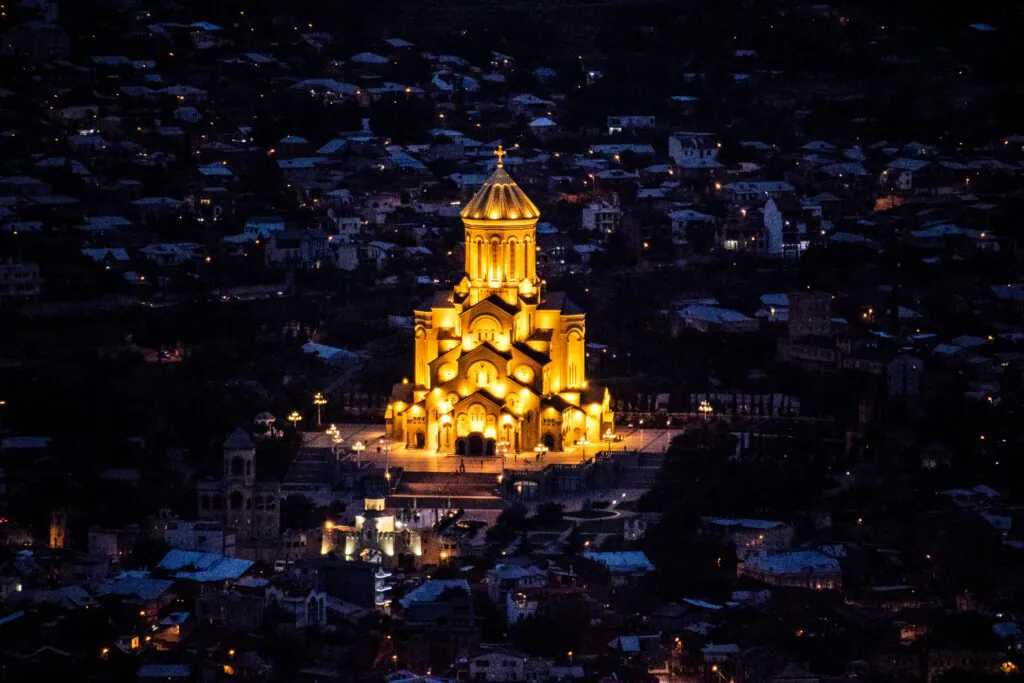
Essential Tbilisi Experiences
Old Town: Where History Lives
Forget audio guides and rushed tours. Old Tbilisi reveals itself best to wanderers. Start early when morning light hits the colorful balconies and wooden facades. The cobblestone streets lead to hidden courtyards, family-run bakeries, and viewpoints that frame the city perfectly.
Narikala Fortress crowns the old quarter like a stone guardian. Skip the crowds by taking the cable car at sunset instead of midday. The fortress offers 360-degree views, but the real magic happens as the city lights begin twinkling below.
The Abanotubani sulfur baths aren’t just tourist attractions—they’re communal spaces where locals have gathered for centuries. Book a private room at Orbeliani Baths for an authentic soak, or try the public baths for a more social experience. The mineral-rich waters are said to heal everything from arthritis to broken hearts.

Contemporary Culture Hub
Fabrika represents new Tbilisi perfectly. This converted textile factory now houses everything from third-wave coffee roasters to coworking spaces. Digital nomads gravitate here for the reliable WiFi and creative energy, while travelers love the weekend markets and pop-up events.
The Peace Bridge looks like it landed from the future, its LED display creating nightly light shows. Love it or hate it (locals are divided), it’s become an integral part of Tbilisi’s evolving skyline.
For art enthusiasts, MOMA Tbilisi showcases contemporary Georgian artists alongside international exhibitions. The building itself, with its striking architecture, deserves as much attention as the art inside.
Hidden Gems Beyond the Guidebooks
Take the funicular to Mtatsminda Park for panoramic city views and a glimpse of local family life. The amusement park feels charmingly retro, and the restaurants offer traditional food with a view.
Dry Bridge Market happens every weekend, where Soviet-era artifacts meet handmade crafts. It’s not just shopping—it’s archaeology. Chat with vendors about their treasures; many pieces come with fascinating stories.
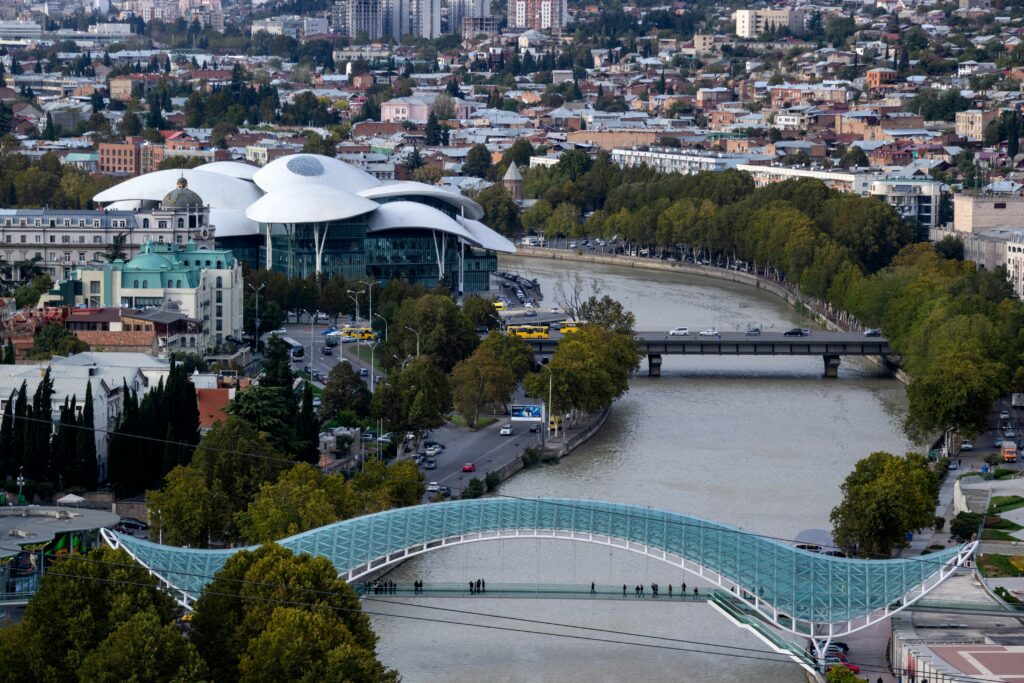
Georgian Cuisine: A Culinary Adventure
Georgian food culture centers around the concept of supra—lengthy, celebratory meals that blur the lines between dining and socializing. Even quick lunch spots embrace this philosophy.
Khachapuri varies by region, each with devoted local fans. Try Imeretian (circular and cheesy), Megreli (with extra cheese on top), and Adjarian (boat-shaped with egg and butter). Locals eat it with their hands, tearing off pieces to scoop up other dishes.
Khinkali requires technique: hold by the twisted top, bite a small hole, sip the broth, then eat the dumpling. Never eat the tough top knob—it’s like a handle.
Don’t miss pkhali (vegetable pâtés with ground walnuts) or badrijani (eggplant rolls). Georgian cuisine offers surprising variety for vegetarians, with creative uses of beans, herbs, and nuts.

Wine: An 8,000-Year Tradition
Georgia claims to be wine’s birthplace, fermenting grapes in buried clay vessels called qvevri. This ancient method produces wines unlike anything you’ll taste elsewhere. Visit Vino Underground for natural wine tastings, or join a Kakheti region day trip to see qvevri production firsthand.
Restaurant Recommendations:
- Shavi Lomi: Modern Georgian cuisine in a cozy setting
- Barbarestan: Historical recipes recreated from a 19th-century cookbook
- Azarphesha: Vegetarian Georgian food that surprises meat lovers
- Khachapuri House: The name says it all
Where to Stay: From Soviet Chic to Digital Nomad Havens
Neighborhoods That Matter
Old Town offers atmosphere and walking access to major sights, but can be touristy and noisy. Vera attracts digital nomads with its quiet streets and cafe culture. Vake provides modern amenities and green spaces, perfect for longer stays.
Accommodation Options:
- Rooms Hotel Tbilisi: Industrial-chic design with a rooftop pool and incredible city views
- Stamba Hotel: A converted printing house with bold interiors and excellent dining
- Local Guesthouses: Family-run places in Old Town offer authentic experiences and insider tips
- Airbnb: Monthly rentals average $400-800, depending on location and amenities
Practical Information for Modern Travelers
Money Matters
The Georgian Lari (GEL) offers excellent value. Current exchange rates favor international visitors, with restaurant meals costing $5-15 and accommodation starting around $20/night for quality options.
Daily Budget Estimates:
- Backpacker: $25-40 (hostels, street food, public transport)
- Mid-range: $50-80 (hotels, restaurant meals, occasional taxis)
- Digital Nomad Monthly: $800-1500 (apartment, coworking, dining out)
Getting Around
Metro: Clean, efficient, and costs practically nothing. Two lines cover most places you’ll need to go. Taxis: Use Bolt for transparent pricing and reliable service. Traditional taxis require negotiation. Walking: The compact center makes most attractions accessible on foot.
Related Post: The Best Apps to Track Travel Expenses (and Keep Your Budget on Point)
Language and Communication
Georgian script looks mysterious, but don’t worry—most signs include English in tourist areas. Younger locals often speak English, while older generations may know Russian. Download Google Translate with camera function for menu reading.
Essential Georgian phrases:
- Hello: Gamarjoba (ga-mar-jo-ba)
- Thank you: Gmadlobt (gma-dlobt)
- Excuse me: Ukatsravad (u-kats-ra-vad)
Safety and Culture
Tbilisi ranks among Europe’s safest capitals. Street crime is rare, and police are helpful to tourists. The biggest risk is overindulgence in Georgian hospitality—saying no to wine refills can be challenging.
Cultural Tips:
- Remove shoes when entering homes
- Toasts at dinners can be lengthy and meaningful
- Tipping 10% at restaurants is standard
- Dress modestly when visiting churches
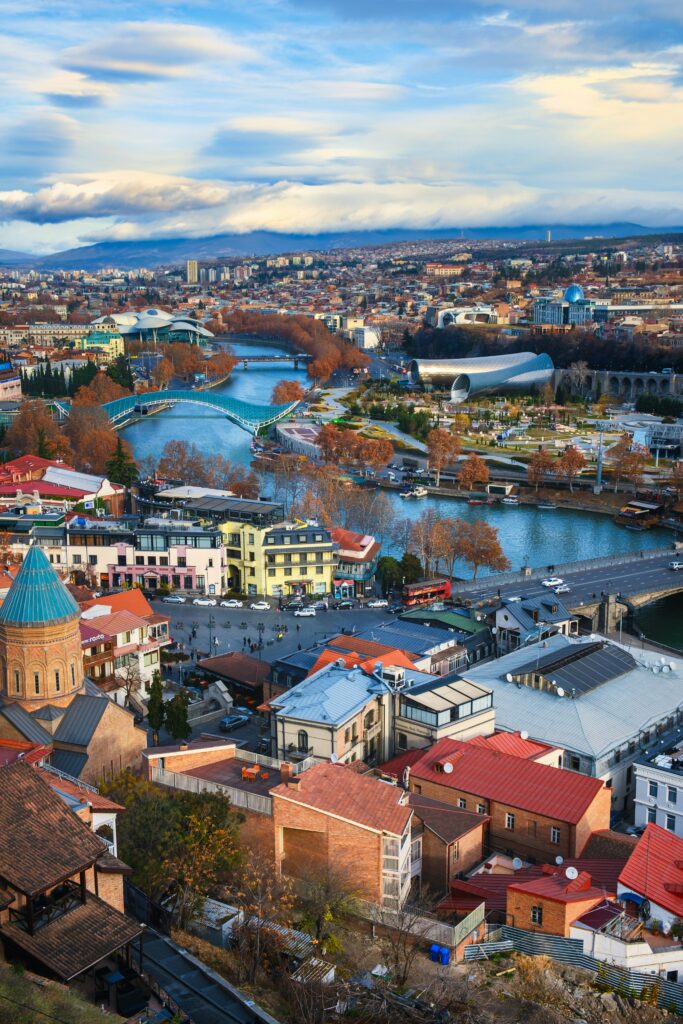
Digital Nomad Paradise
Tbilisi’s emergence as a remote work destination isn’t accidental. The government’s Remotely from Georgia program allows many nationalities to work legally for up to a year. Internet speeds average 40+ Mbps, often faster than Western European cities.
Top Coworking Spaces:
- Impact Hub Tbilisi: International community with networking events
- Terminal: Modern facilities in the city center
- Fabrika: Creative atmosphere with integrated cafe culture
- TBC Concept: Bank-sponsored space with premium amenities
The nomad community organizes regular meetups, hiking trips, and skill-sharing sessions. Many professionals extend their stay indefinitely, drawn by the affordable lifestyle and genuine friendships.
Getting There and Getting Started
Tbilisi International Airport connects to major European cities, with budget carriers offering flights from €50-150. The city center is 20 minutes away by bus or taxi.
Visa Requirements: Citizens from 95 countries can stay in Georgia visa-free for 365 days, making Tbilisi incredibly accessible for extended stays. The “Remotely from Georgia” program is currently inactive, but the visa-free policy makes it equally accessible for digital nomads.
Best Times to Visit:
- Spring (April-June): Mild weather and blooming city parks
- Autumn (September-November): Wine harvest season and comfortable temperatures
- Winter (December-March): Fewer crowds, cozy wine bars, possible snow
- Summer: Hot but lively, with outdoor festivals and extended daylight
Essential Apps
- Bolt: Ride-hailing with transparent pricing
- Glovo: Food delivery from local restaurants
- TBC Pay: Local payment app accepted everywhere
- Tbilisi Transport: Public transportation schedules and routes
Why 2025 is Tbilisi’s Year
Georgia’s capital is experiencing a cultural renaissance. New museums are opening, the food scene is evolving beyond traditional offerings, and infrastructure improvements make navigation easier. International flights are increasing, but mass tourism hasn’t arrived yet—meaning you’ll experience Tbilisi at its most authentic.
The city offers something many destinations have lost: genuine surprise. Whether you’re negotiating for Soviet-era cameras at Dry Bridge Market, debating Georgian wine philosophy with a taxi driver, or discovering a hidden courtyard restaurant, Tbilisi rewards curiosity.
For digital nomads, the combination of low costs, high-speed internet, and growing international community creates an ideal environment for productivity and personal growth. For traditional travelers, it offers cultural immersion without tourist trap frustrations.
Tbilisi isn’t trying to be the next Prague or Barcelona. It’s confidently itself—a city where ancient traditions and modern ambitions coexist naturally. That authenticity, combined with incredible value and genuine hospitality, makes Georgia’s capital one of 2025’s most compelling destinations.
Pack light, bring an open mind, and prepare for a city that will challenge your assumptions about travel, culture, and what makes a place truly special.
Related Post: Digital Nomad Visa in Georgia – Complete Guide: Everything You Need to Know
